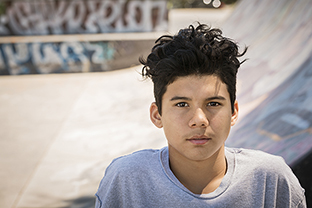
WHICH STATES GIVE FOSTER CHILDREN A BETTER START IN ADULT LIFE?
Queensland, New South Wales and the Northern Territory have been challenged to follow other states by making urgent child protection reforms for vulnerable foster children who are suffering alarming high levels of homelessness, unemployment and health problems.
There are around 50,000 foster children across Australia, with those in Tasmania, South Australia, Victoria, Western Australia and the Australian Capital Territory now getting a better start in adult life due to recent Home Stretch government announcements extending care and support from 18 to 21 years.
Paul McDonald, Chair of the Home Stretch coalition of 163 child welfare organisations congratulated the premiers who have agreed to provide the extended care option but says this “should be a universal right for all young people in foster care across Australia”.
“Premiers supporting this change are making a profound impact on improving the lives of the young people under their parental care,” says Mr McDonald.
“The evidence shows this will dramatically reduce young care leavers becoming homeless, pregnant, drug and alcohol dependant, suffering mental health problems and arrests. And it will double their participation in education and employment.”
The US, UK, Canada, New Zealand and parts of Europe have already extended out-of-home care to 21 years proving the significant benefits to foster children, carers and society. So why haven’t all Australian governments implemented Home Stretch legislative reform?
“As their legal parent, the state and territory government policy is to transition these children – many of whom have been traumatised by abuse, neglect, poverty and abandonment – out of the care system from the age of 15. At 18 years, all care stops and these kids are told ‘you are on your own’.”
Mr McDonald says that not every young person in foster care will take up that right for three extra years of government support but they deserve the same opportunities as other young Australians, many of whom are continuing to live with their parents well into their 20s.
The Home Stretch campaign is backed by independent research by Deloitte Access Economics that shows that for every $1 invested in extending foster care to 21 years, society benefits by more than $2 in: reduced crime, health care, homelessness and increased further education and employment for foster children.9
“Extending foster care for just three extra years is better for them and better for society. It’s an investment, not a cost. It would actually save governments $2.4 billion over 10 years. More importantly, it would give thousands of foster children hope for a brighter start in life.”
Home Stretch financial impact over 10 years:
- Savings to Commonwealth Government $1.8 billion
- Savings to state and territory governments $600 million
Home Stretch #makeit21 progress to date:
- Tasmania has led the way for change in early 2018 with both major political parties agreeing to extend support to out of home care to 21.
- Western Australia has just extended its small Home Stretch trial (15 young people in Fremantle for 1 year) thanks to a $1.5m grant by Lotterywest that will assist up to 10 extra care leavers in the program’s first year, and up to 25 more in each of the second and third years.
- South Australia announced extended care to 21 years for all those in foster and kinship care. (95% of those in out of home care). They are looking at how to offer extended care to those in state residential care.
- ACT has extended care to 21 for all those in residential, foster and kinship care.
- Victoria has agreed to provide extended care to 21 years for 50 young people each year (10% of the annual 500 care leavers) over the next 5 years.
- New South Wales, Queensland and the Northern Territory governments are yet to announce that they would support extended foster care to 21 years.
Foster care in Australia – fast facts & stats:
- The term ‘foster care’ relates to all children in formal and informal out-of-home care; whether they are in state foster care, relative/kinship care or residential care
- Approximately 50,000 children are currently in the state care system1
- 3,000 children leave the foster care system every year
- Within the first year of children leaving foster care345678
- 39% are homeless
- 46% of boys and 22% of girls are in the criminal justice system
- 54% have mental health issues (foster kids are 8 times more likely to commit suicide)
- 17% are pregnant during adolescence
- 29% are unemployed
- For every $1 invested in extending foster care to 21 years, society benefits by more than $29 in:
- reduced crime (16.3% ¯ 10.4%)
- reduced mental health care (54.4% ¯ 30.8%)
- reduced drug and alcohol dependency (15.8% ¯ 2.5%)
- reduced hospitalisations (29.2% ¯ 19.2%)
- reduced homelessness (39% ¯ 19.5%)
- reduced teen pregnancies (16.6% ¯ 10.2%)
- increased further education (4.5% 10.4%)
- Indigenous children are 10 times more likely to be in foster care7
- Foster children are 8 times more likely to take their own life1
- 97% of carers believe that foster care should be extended to 2110
Available for interview
Media contact: Jodie Harrison 0425 754 370 jodie@theshannoncompany.com.au
